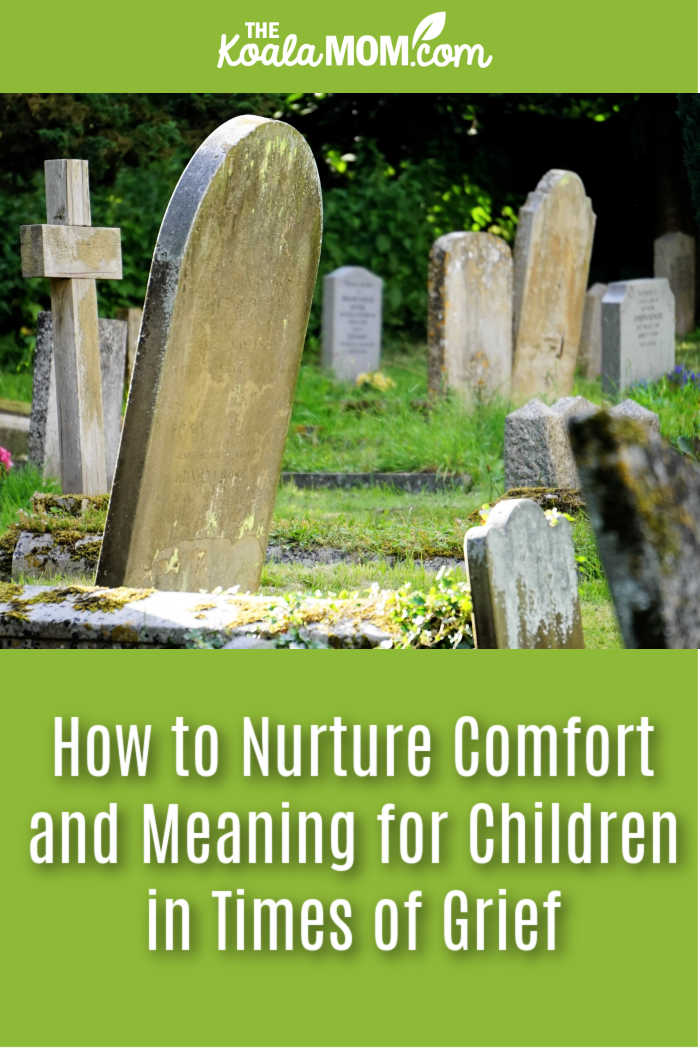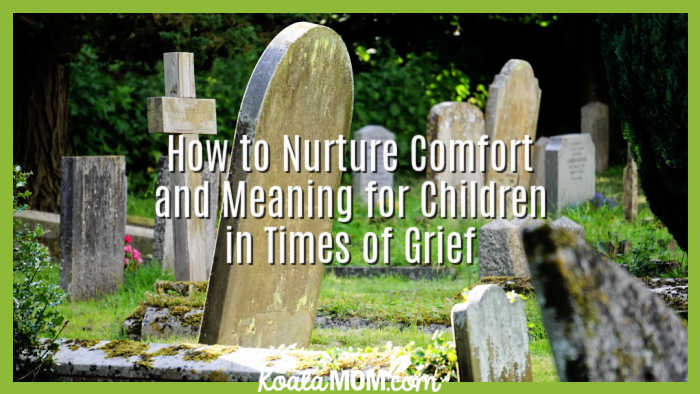Death is a concept we, as a kind, have never truly understood. Since ancient times, man’s struggle with mortality and the passing of time has made our lives more meaningful and joyful and motivated us to use the time we have to our best knowledge and understanding. Death is a silent reminder to cherish the precious moments we have with our family, loved ones, and friends. And although mysterious, death is nothing to fear, it’s a natural process. We came, and now we go back.
Yet the childish minds of kids can be troubled by these thoughts. How do you explain to a child that someone they cared about no longer exists? How to help your child overcome grief and a sense of loneliness? In the text below, we’ll discuss this and the ways to nurture their feelings in a way that allows them to accept death and its inevitable consequences.

Open and Honest Communication
The foundation of every healthy relationship and nurturing comfort is to openly communicate our feelings and the thoughts that trouble us in times of grief. Children sometimes seem like they don’t talk much, but they can actually say a lot with the words they know. Children have the ability to transmit their feelings in a way that is honest, naïve, and clear. They do not object to prejudice, opinions, and thoughts, which we usually develop later in life.
A child can tell you simple things such as “I feel sad” or “I feel confused”. They need a chance to speak up; avoiding euphemisms or vague terms can help them grasp the reality of the situation. Creating an environment where children feel safe to express their emotions and ask questions is essential. Encouraging them to share their thoughts and concerns can help them process their grief in a healthy way.
Share Memories and Stories
A great way to remind your kids that death is not the end and that our loved ones keep living in our hearts is by sharing the memories and stories you have. Remind them of the beautiful time they’ve had with the person, keep pictures, and think of funny stories to cheer them up.
A great way to achieve this is through personalized ceremonies, as they are a living tribute to the life and legacy of the person. It’s a great way to honor their last wish and share their stories and achievements. It’s a unique way to remind your child that life is about creating a lasting effect on the people around us; it’s about living in a way that gives you the chance to leave something behind.
Validate Their Emotions
Children can often struggle to express their emotions freely because they lack the proper words. So, make sure to validate their emotions, and don’t assume they don’t understand and therefore don’t feel; rather, because they don’t understand, they feel more intense and can be even more confused.
Let them know that it’s okay to feel sad, angry, confused, or even relieved. Assure them that their emotions are valid and that everyone copes differently. Give them time, give them their space, and ask them what’s happening in their heads. Make sure they feel appreciated.
Books may help your child find a way to talk about how they are feeling. My Mixed Emotions is an excellent resource that covers numerous emotions children may face, not just grief, and can be a helpful aid in bringing up various topics around emotions. Dying is Part of This World is another book that may help children process what they are thinking about their loved one’s passing.
Seek Professional Help When Necessary
If a child’s grief becomes overwhelming or starts to significantly impact their daily life, you’ll have to look for a professional to deal with the situation. Child psychologists, therapists, or grief counselors are people who can provide specialized support and guidance tailored to the child’s emotional needs. They usually have years of experience and know how to gain the child’s trust and allow the child to express themselves freely.
We strongly advise against postponing a visit to a counselor or psychologist, particularly if the loved one’s death is associated with a traumatic event (and not just a long illness or old age). For example, Prince Harry’s memoir Spare is an excellent example of a child facing a traumatic event (the death of his mother) with a complete lack of support from his family, much less any professional help. He details how his grief affects the rest of his childhood and adult life as he attempted to process it himself, in ways that weren’t always healthy or productive.

Emphasize the Continuation of Love
As said, the first lesson your child will have to learn is that death is not the end of the way they feel about someone or their love for them. Tell your child that they can love someone despite them not being around anymore. Tell them it’s normal to miss them from time to time and that the person has gone to a better place. When your child knows that they don’t have to suppress their emotions because the person is not there anymore, they’ll have a sense of comfort and security.
We hope that this article was educational and helpful enough and that you will comfort your child in the best possible way.

No Responses Yet